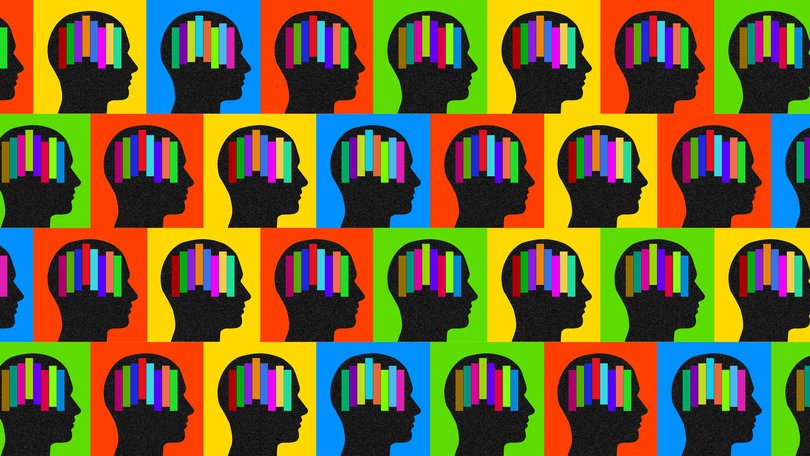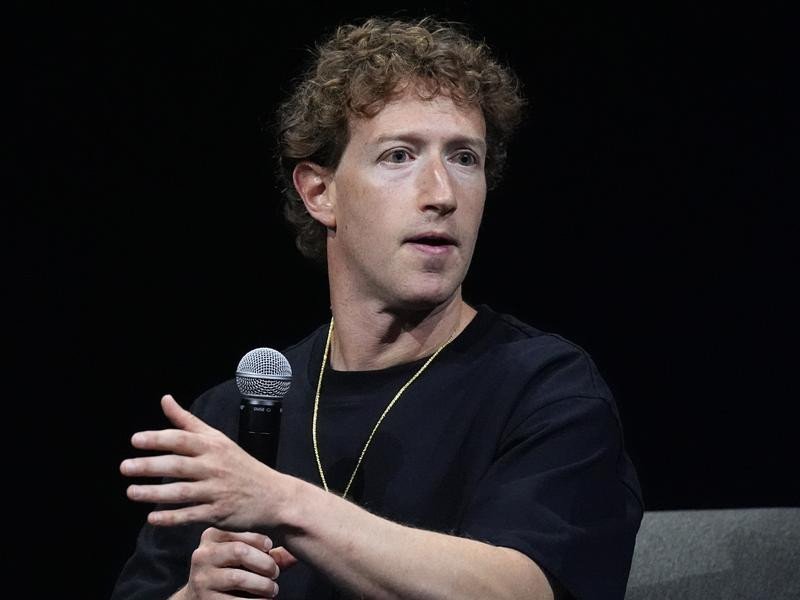TOM RICHARDSON: Why Meta, Alphabet and Microsoft are building infrastructure to train the world
TOM RICHARDSON: AI will accelerate the algorithm economy and its potential explains why mega-cap tech bosses will commit unlimited amounts to AI investments.

Mega-cap tech trio Meta, Alphabet, and Microsoft posted strong profits Thursday, giving them room to spend hundreds of billions of dollars on data centres and computer chips to power the global artificial intelligence boom.
Some investors think their plans will never generate profits for shareholders. They argue AI is a bubble and the companies are engaged in circular spending by buying and selling with each other.
The critics may be misunderstanding the business of AI.
Sign up to The Nightly's newsletters.
Get the first look at the digital newspaper, curated daily stories and breaking headlines delivered to your inbox.
By continuing you agree to our Terms and Privacy Policy.Algorithm economy
Google-owner Alphabet, Instagram-owner Meta, and X have software engineers train algorithms to understand what social media users want to see. Then the algorithms feed their 3.5 billion users content that tells them what to think, desire, buy, like and promote to others.
AI improves the algorithmic models by finding interesting information and entertainment that people enjoy longer.
The likes of Facebook founder Mark Zuckerberg have recognised this and intend to own the feedback loop.
Moreover, social media players like YouTube and Instagram need regular people, in the billions, to create content. Generative AI, as a new technology to create content, should assist them in this once the infrastructure is in place.
Paid AI employees at Meta — often on $US1 million ($1.5m) to $100 million annual salaries — perform a fraction of the daily labour for his algorithmic business. Most of the work is done for free by Meta’s 3.5 billion users each time they share a video, photo, song, message, or insult, to create content and train the algorithms.
In the context of this business model, the potential for AI to increase content creation and lift engagement is fuelling the race to invest in the AI infrastructure mega-cap tech companies think will capture more of our attention to sell us things, while selling that attention back to advertisers.
“We’re continuing to see improvements to our products and recommendations, and drive incremental engagement with year-over-year growth in global time spent accelerating on both Facebook and Instagram in Q3,” Mr Zuckerberg said on Thursday.
The Modern Prometheus

Unsurprisingly, Mr Zuckerberg wants the data centre investments to be prepared “for the most optimistic cases” in AI’s pace of development.
The largest data centre in Ohio, US, is planned to come online in 2026 is nearly 23 square miles (about the size of Manhattan) and was named Prometheus by Mr Zuckerberg presumably in homage to the Greek god of human advancement.
Incidentally, the next time AI captured the human imagination was in Mary Shelley’s novel Frankenstein published in 1818, which the author originally named The Modern Prometheus before reverting to the eponymous character’s name.
Like Frankenstein, Mr Zuckerberg divides opinion, but clearly intends to spend his way to the top of the AI pile.
As an example, Meta’s expenses jumped 32 per cent over the September quarter and the stock tumbled in futures markets on Thursday.
The algorithm entrepreneur spelled out much of his vision on Thursday morning.
“The upside (to infrastructure capex) is extremely high for both our existing apps and new products and businesses that are becoming possible to build,” he said.
“Across Facebook, Instagram, and Threads, our AI recommendation systems are delivering higher quality and more relevant content, which led to 5 per cent more time spent on Facebook in Q3 and 10 per cent on Threads. With video time spent on Instagram up more than 30 per cent since last year.
“Now as AI makes it easier to create and remix content, we’re going to add yet another huge corpus (body) of content on top of those. Recommendation systems that understand all this content more deeply and show you the right content to help you achieve your goals are going to be increasingly valuable.”
YouTube, future of AI
Google and YouTube’s owner, Alphabet, has doubled revenue from $US50 billion a quarter five years ago to $US100 billion in the quarter ended September, 2025.
Much of Alphabet’s growth comes from algorithmic video platform YouTube. It has virally grown to 2.5 billion monthly users, with algorithms especially popular among younger generations, women and in emerging markets like India or Brazil.
AI is cementing YouTube’s dominance and Alphabet is not going to back away from spending to support this.
“Moving to YouTube, where we saw accelerated revenue growth. Our recommendation systems are driving robust watch time growth in our key monetization areas like shorts and living room,” Alphabet’s chief executive Sundar Pichai told its earnings call on Thursday.
Such is the dominance and riches of mega-cap tech and its AI-powered algorithms that these companies now have no real competitors in their role as internet landlords.
Once all this is processed, it’s easier to see why mega-cap tech founders like Mr Zuckerberg won’t worry about calls that AI infrastructure investments are a waste of money or the sector a bubble likely to burst.

